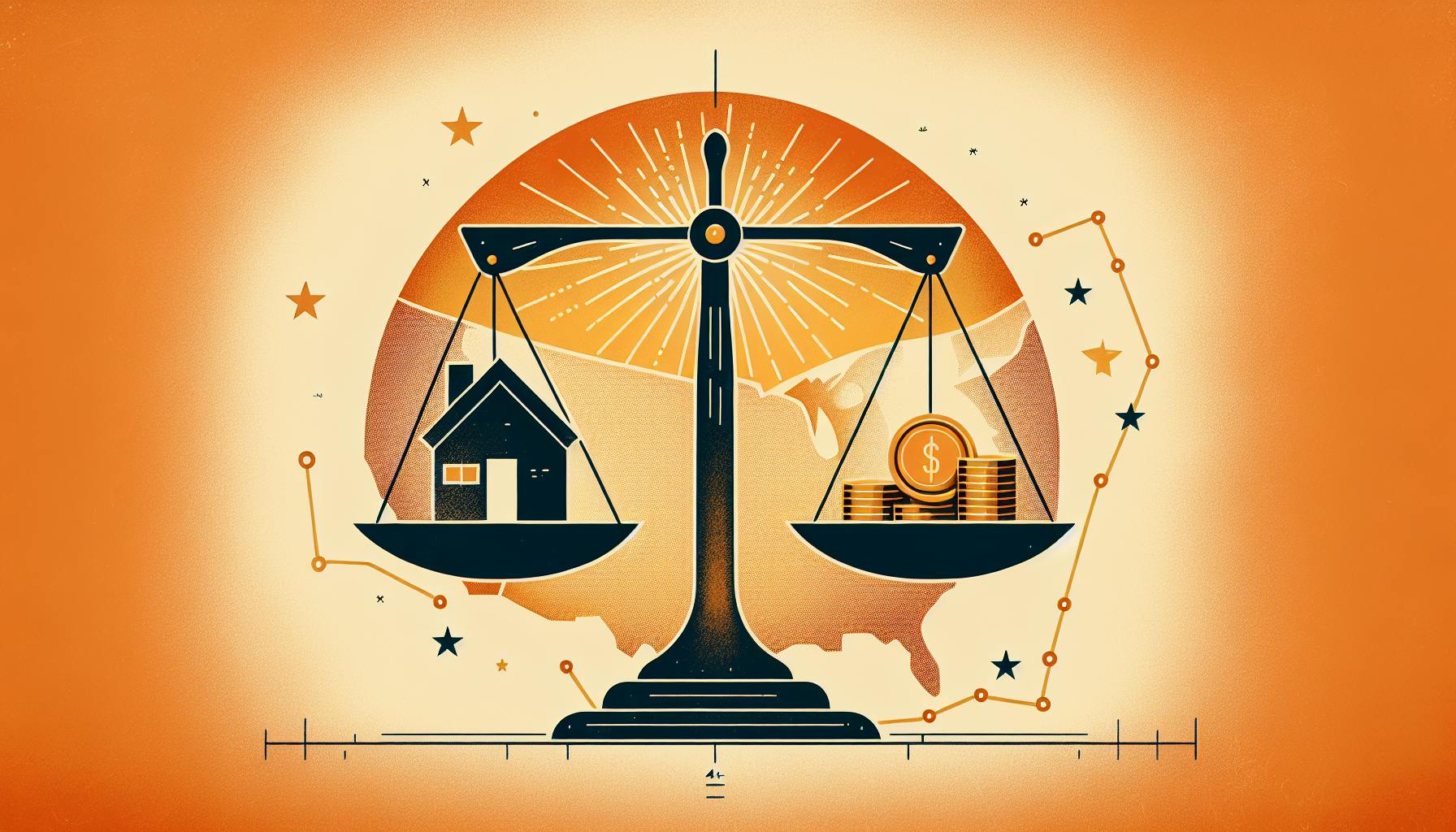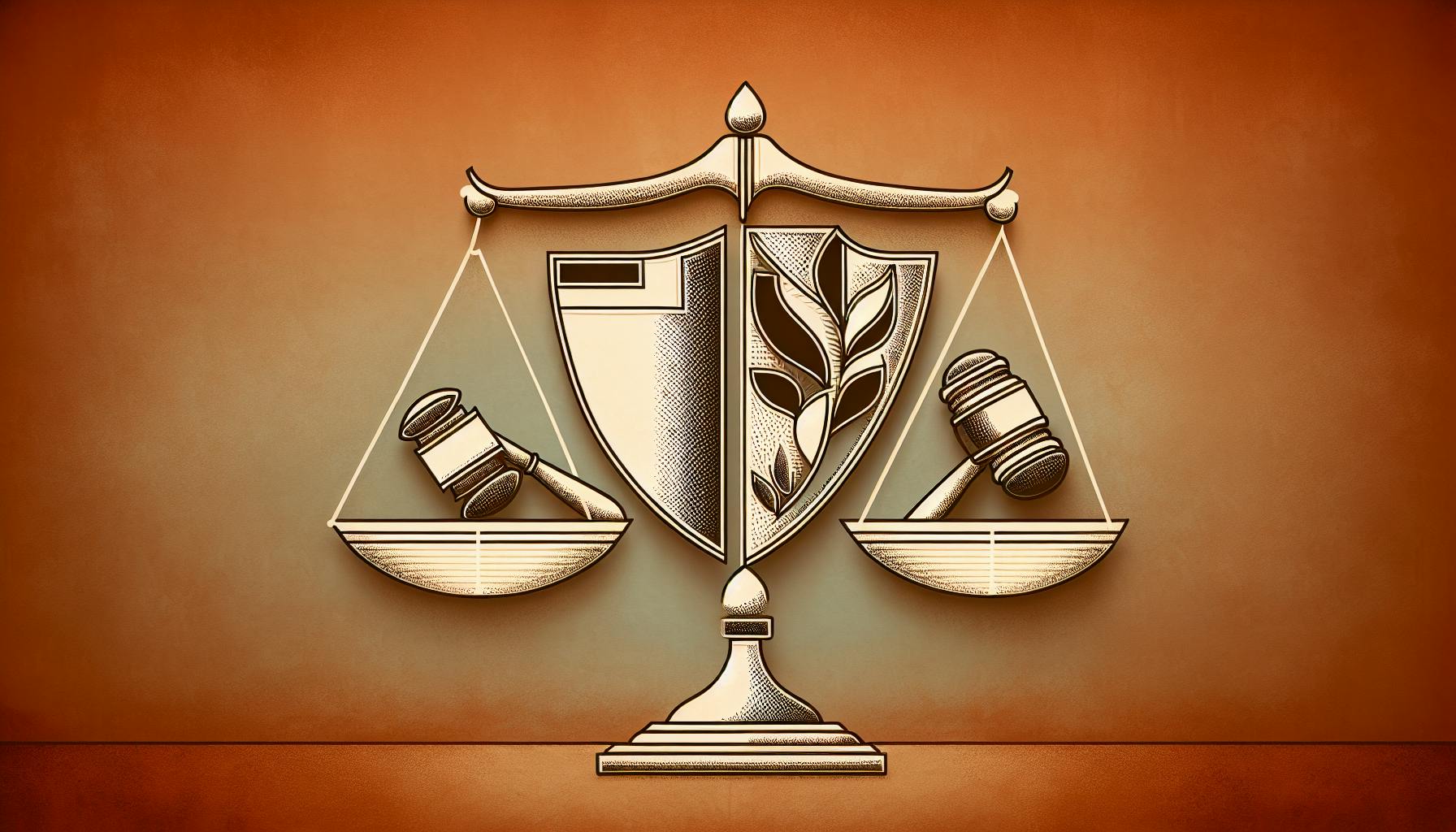Most likely everyone will agree with the statement:
It's REALLY hard to maintain ethical standards under pressure in the legal profession.
Well, developing integrity safeguards can dramatically uphold lawyer conduct and public trust.
...This article examines the implications of misconduct, providing frameworks to confront violations and restore legal integrity.
You'll see what constitutes unethical behavior, its consequences, and firm-level controls to reinforce professional standards.
Introduction: The Cost of Unethical Practice in Law
The legal profession is built on ethics and trustworthiness. Attorneys have an obligation to uphold the highest moral standards, both to serve their clients and maintain confidence in the legal system. Unfortunately, lawyer misconduct still occurs, undermining this necessary trust. Common examples include mishandling client funds, overbilling, conflicts of interest, and false advertising. Even minor infractions can significantly impact client relationships and public perception.
While regulations aim to deter misconduct, additional vigilance is needed. Law firms should prioritize ethics training and oversight, with transparent complaint processes. Individual lawyers must also take responsibility through proactive risk-management and commitment to moral practices. By making ethical behavior a top priority, the legal profession can mitigate misconduct risks and their heavy tolls. Integrity protects both lawyers and those they serve.
What are the consequences of professional misconduct?
Professional misconduct allegations are quite serious, especially within the legal profession. When lawyers fail to uphold ethical standards and comply with professional rules, they risk significant consequences such as:
Suspension or Revocation of License
Regulatory bodies like state bar associations can suspend or revoke a lawyer's license to practice law after establishing proof of misconduct. Common examples include mishandling of client funds, overbilling, practicing without a valid license, and failure to meet continuing legal education requirements. Suspensions typically last from 30 days to 5 years depending on the severity of violations.
Civil Lawsuits and Financial Penalties
Lawyers found guilty of professional misconduct may face civil lawsuits, resulting in judgments ordering payment of monetary damages to injured parties. They can also receive fines and other financial penalties from courts and regulatory agencies. These can amount to tens or hundreds of thousands of dollars.
Reputational Damage
Allegations alone can harm a lawyer's professional reputation even if unproven. Public findings of guilt often receive media coverage, destroying public trust. This causes loss of clients, fall in earnings, and difficulty rebuilding one's career.
In summary, lawyers have ethical and professional obligations to clients, courts, and society. Breaching them invites grave disciplinary action jeopardizing their license, finances, and reputation. Maintaining honesty and integrity is paramount.
What is unethical behavior in the legal profession?
Unethical behavior by legal professionals can undermine the integrity of the justice system. Some examples of attorney misconduct include:
Conflicts of Interest
Attorneys have a duty to avoid representing clients with competing interests. Failure to do so erodes client trust and the legal profession.
Overbilling
Pading bills or charging for work not performed violates ethics rules. Such greed damages the attorney-client relationship.
False Statements
Making intentional misrepresentations or omissions to clients or courts should lead to discipline. Candor and honesty are paramount.
While rules vary by jurisdiction, the ABA Model Rules of Professional Conduct offer guidance. Upholding ethics helps build public trust in the legal system. With Legal Buddies' global talent network, law practices can access cost-effective support from vetted professionals to maintain ethical standards.
What is considered professional misconduct?
In general terms, professional misconduct is unethical or unprofessional behavior that falls short of the ethical or professional standards, guides or codes of conduct, accepted by a particular profession.
For lawyers specifically, misconduct refers to violations of rules of professional conduct that govern attorneys. Some examples include:
- Failure to provide competent representation to clients
- Failure to act with reasonable diligence and promptness in representing a client
- Charging unreasonable fees or overbilling clients
- Making false statements or claims to a court or tribunal
- Improperly communicating with an opposing party who is represented by counsel
- Revealing confidential information about a client
The implications for lawyers who engage in misconduct can be severe. They may face disciplinary sanctions such as reprimand, censure, suspension of their license to practice law, or even disbarment in more extreme cases. The severity of the sanction often depends on the nature of the offense.
Why it matters
Attorney misconduct, even minor violations, can significantly damage the integrity of the legal profession. The public expects lawyers to uphold high ethical standards, and misconduct erodes public trust. It can also directly harm clients by depriving them of diligent, competent representation or even their financial interests in cases of overbilling.
Maintaining an ethical culture in the legal profession is critical. Clients rely on attorneys to protect their rights and interests to the best of their abilities while also adhering to rules of professional conduct. Anything less risks undermining confidence in the fundamental fairness and integrity of the legal system.
What is an example of professional misconduct?
As legal professionals, we have an ethical responsibility to uphold the highest standards of conduct. Unfortunately, sometimes attorneys engage in misconduct that violates these ethical codes. Some examples of professional misconduct include:
Failing to Communicate
Repeatedly failing to respond to client calls, letters, or other inquiries without a reasonable justification constitutes misconduct. Effective communication is key for building trust between an attorney and client. Ignoring a client erodes that trust.
Bullying and Intimidation
Using threatening, offensive language or aggressive tactics to influence a client's decisions or pressure them into an undesirable settlement is unethical. Clients deserve respect and fair treatment.
Conflicts of Interest
Acting despite having competing interests that could compromise the attorney's ability to effectively represent the client demonstrates poor judgement. Attorneys should avoid and disclose any potential conflicts to clients.
Ultimately, attorneys should act with honesty, integrity and accountability. Upholding the highest ethical standards ensures fairness, justice and positive outcomes for all parties involved.
sbb-itb-e93bf99
Understanding Professional Misconduct for Lawyers
Lawyers have an ethical and professional duty to abide by standards of conduct set forth by bar associations and state supreme courts. Violations of these standards constitute professional misconduct and can result in disciplinary action.
Deciphering Ethical Violations in Legal Practice
Attorneys must adhere to their jurisdiction's rules of professional conduct, which outline ethical obligations lawyers owe to clients, courts, and the legal profession. Ethical violations that qualify as misconduct include:
- Revealing client confidences without permission
- Failing to avoid conflicts of interest
- Mishandling client funds or property
- Making false statements to a court or third party
- Assisting a client in fraudulent or criminal behavior
These violations erode public trust in the legal profession. Disciplinary actions, such as license suspension or disbarment, aim to protect the integrity of the judicial system.
Negligence: A Form of Lawyer Misconduct
In addition to ethical breaches, attorneys can face allegations of professional negligence. This occurs when lawyers fail to provide legal services competently, as defined by conduct rules. Common issues include:
- Errors and omissions that harm a client's legal matter
- Inadequate case investigation or preparation
- Neglecting duties owed to a client
Negligent representation violates the lawyer's basic duty of competence. Like other misconduct, it can prompt grievances with state bar associations and spur malpractice lawsuits.
Ultimately, attorneys must remain diligent in fulfilling ethical and professional obligations. Carelessness or misdeeds threaten an attorney's ability to practice law.
Examining Defense Attorney Misconduct Examples
We explore real-world cases of attorney misconduct spanning ethical breaches, negligence, and criminal offenses. While most lawyers uphold ethical standards, understanding where others have gone astray can help prevent future transgressions.
Misuse of Trust: Mishandling Client Funds
A common ethical violation is when lawyers misuse or steal client money held in trust accounts, such as using these funds for personal expenses. For example, a California attorney faced disbarment after illegally withdrawing over $120,000 from her client trust account. She used the money to pay off personal credit card bills and other non-client expenses. This clear breach of client trust led to her losing her legal license.
While an extreme case, even minor slip-ups in properly tracking and accounting for client funds can quickly spiral into accusations of misconduct. Lawyers must closely monitor trust accounts, provide timely statements on fund usage, and keep meticulous records to avoid any semblance of impropriety.
Overstepping Bounds: Excessive Billing Practices
Some attorneys engage in fraudulent billing practices, like inflating billable hours or charging for work that was never done. In one noteworthy case, the former law firm Daugherty, Fowler, Peregrin, Haught & Jenson was accused of overbilling their client State Farm by tens of millions of dollars. The misconduct allegedly involved billing clients for unnecessary document review, charging multiple clients for the same work, and logging more billable hours in a day than possible.
Such excessive billing erodes client trust and reflects poorly on the legal profession. While ambition can motivate unethical attorneys to overreach, proper oversight and accountability measures by firms can help curb misconduct. Setting reasonable billing expectations, auditing time logs, and maintaining open communication channels with clients are proactive ways law practices can promote integrity from within.
This examination of real-world examples offers key lessons into preventing attorney misconduct through vigilant self-regulation and adhering to the highest ethical codes, even when facing tremendous pressure. After all, an attorney's reputation and privilege to practice law depends on it. Consulting services like Legal Buddies can further help law firms implement best practices surrounding billing procedures, case management, legal spend optimization, and more to minimize compliance risks.
The Ripple Effect of Lawyer Misconduct Cases
The implications of lawyer misconduct are far-reaching, negatively impacting clients, the justice system, and the legal profession's reputation.
Clients Bearing the Brunt: Harm from Misconduct
When attorneys violate professional rules or ethical codes, their clients often bear the greatest brunt of harm. Financial losses from fraud or theft of client funds can be financially devastating. Legal cases may suffer irreparable damage when evidence is mishandled or deadlines are missed due to an attorney's negligence or impairment. The emotional toll of betrayal of trust and abuse of the attorney-client relationship can leave scars for years.
For example, clients may spend thousands of dollars and months of time only to have their case dismissed due to an attorney failing to file documents properly or show up to court dates. The financial and emotional impacts on clients from such misconduct is immense. Careers and family relationships may suffer under the weight of these burdens. And regaining trust in the legal profession becomes an uphill battle after being victimized.
Undermining Justice: Erosion of Public Trust
High-profile cases of lawyer misconduct reinforced negative public perceptions and decreased confidence in the justice system. The American Bar Association estimates over 50 percent of people believe lawyers lack honesty and integrity. When lawyers violate ethics rules without accountability or consequences, it signals privilege and unfairness to the average citizen.
Media coverage of misconduct ranging from high-powered corporate attorneys evading taxes or prosecutors withholding evidence further eroded public trust. It painted a picture of corruption, greed, and moral bankruptcy. The cumulative impact makes citizens less likely to seek legal recourse even when genuinely needed. This erosion of access to justice ripples across communities.
Ultimately, misconduct harms the integrity and fairness of the overall judicial system. Lawyers play an integral role in the administration of justice and upholding rule of law. When lawyers fail in their duties as officers of the court, it reflects poorly on the entire profession. More transparency, accountability, and cultural change is needed to curb misconduct.
Confronting Opposing Attorney Misconduct
Tackling this issue requires preventative policies by firms, disciplinary action by bar associations, and reforms to promote accountability.
Firm-Level Safeguards Against Misconduct
Law firms should implement reasonable precautions to prevent misconduct, including:
- Financial controls and auditing procedures to identify irregularities
- Mandatory ethics training and mentoring programs
- Policies for reporting concerns about potential violations
- Mechanisms to address problematic firm culture
However, the root causes driving misconduct often relate to perverse incentives and lack of accountability. Reform is needed at the institutional level.
Bar Associations: Gatekeepers of Legal Integrity
Bar associations play a vital role in regulating attorney conduct through:
- Investigating complaints about violations
- Applying proportionate discipline such as reprimands, suspensions, disbarment
- Referring serious cases for criminal prosecution
To strengthen oversight, bar associations could:
- Provide more transparency around disciplinary processes
- Advocate for firmer penalties and oversight legislation
- Offer misconduct prevention resources and training
Above all, the legal profession must reinforce its commitment to ethics and integrity from the ground up. Firms and regulators should collaborate to realign incentives and norms around serving justice.
Legal Integrity Restored: Summary and Reflections
Attorney misconduct unfortunately occurs, but the legal profession is taking steps to prevent and address it. By focusing on integrity, accountability and high ethical standards, the reputation and public trust in the justice system can be restored.
Some key takeaways include:
- Ongoing education and training in ethics and professional conduct is crucial, starting in law school and continuing as attorneys progress in their careers. Bar associations emphasize and support this.
- Mentorship programs help guide new attorneys in making sound judgments. Experienced attorneys should lead by example and serve as role models.
- Grievance committees and disciplinary boards work to fairly investigate complaints against attorneys and impose sanctions when necessary, signaling that misconduct has consequences.
- Support networks give attorneys facing struggles or impairment access to counseling and remedial programs so they can get back on track ethically. Prevention is ideal.
Rebuilding integrity requires effort from all legal professionals, not just those accused of wrongdoing. By taking responsibility, following best practices, and showing good faith, the legal community can demonstrate its commitment to justice and high standards. Though attorney misconduct occurs, it need not define the profession.


